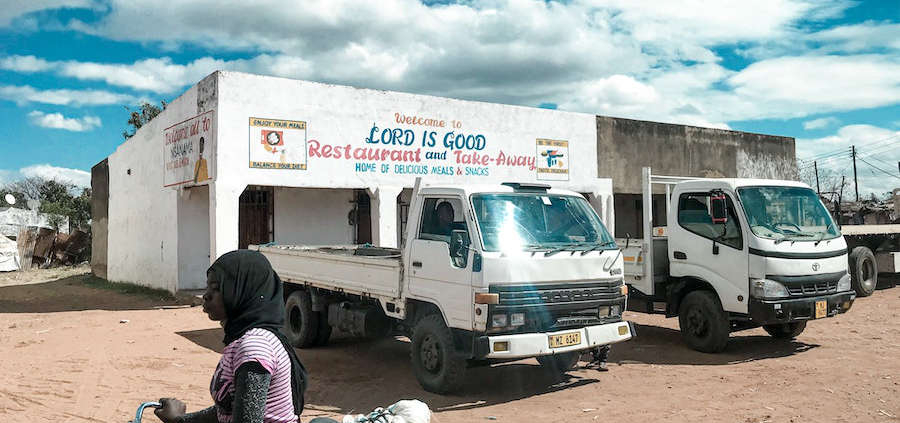Catholic Bishops Are Malawi’s Last Hope by Ray Mwareya
In an unprecedented move this past March, Malawi’s Catholic bishops condemned the country’s government for failing to lift Malawi, one of the world’s poorest nations, out of abject poverty. The rebuke was contained in the annual Pastoral Letter by eight Catholic bishops who form the Episcopal Conference of Malawi (ECM).
The bishops stated that Malawians were “languishing in abject poverty while wealth and luxury are enjoyed by a few who are unconcerned about these dehumanizing conditions of the majority.”
Malawi, a southeastern African nation of 19 million, is governed by Lazarus Chakwera, a devout Pentecostal Christian who came to power in 2019 on the back of a thrilling victory premised on a message of good governance. Mr. Chakwera’s win was hailed as a fresh breath of air in Malawi, which is one of Africa’s most corrupt nations.
But three years into his tenure, Mr. Chakwera has set aside expected democratic norms and is allegedly harboring corrupt elements in his cabinet. Worries about Mr. Chakwera’s moral aptitude emerged in 2021 when he appointed his daughter as a presidential secretary and was accused of nepotism when he included his wife, son-in-law, and daughter in a ten-person official state delegation to the United Kingdom.
Matters came to head in December, when Malawi’s state prosecutors arrested the country’s land and housing minister for receiving bribes in four counts of corruption. At the time, Malawi’s president resisted calls to fire his housing minister until March. On the democratic front, Mr. Chakwera has remained mum as police use discredited “defamation” charges to detain businesspeople, nurses, and activists who merely joke about him on Twitter.
So much was expected of Mr. Chakwera when he led a mini-democratic revolution and took power in 2019. Today, so much disappointment has emanated from his few years in office that the respected Catholic Church has broken its silence and harshly rebuked him.
In poorly governed African nations where the state and civil society are weak, Catholic bishops are often the public’s voice of reason. Bishops have a moral imperative to speak out where citizens fear to do so.
This is especially true in the likes of Malawi’s neighbor, the Democratic Republic of Congo, where the Catholic Church’s tabulation of election results in 2019 was more trusted than the government’s set of data. In Zimbabwe, another neighbor of Malawi, Catholic bishops took a brave stance to condemn the seizure of private property and the collapse of the rule of law in 2001.
As author, political analyst, and dissident from the oppressive Museveni regime in Uganda Yasin Kakande told Today’s American Catholic: “The Catholic bishops are big. From Uganda to Malawi to Congo, they must sound their moral voice louder.”
Of Malawi’s 19 million citizens, nearly 20 percent are Catholics. In 2021, the Catholic Church saw its biggest growth worldwide in Africa, a staggering increase of 8.3 million people. In many resource-stressed African nations, Catholic charities like Caritas International provide a critical buffer against rural hunger. Catholic-run hospitals offer cancer treatment for free to those who might die without it. Even during the grim period of colonial rule, Catholic boarding schools provided the high-value education that shaped modern Africa’s prime ministers, CEOs, bishops, and civil servants.
It is a testament to the high regard the Catholic Church’s voice is accorded across Africa that Malawi’s government spokesperson, Gospel Kazako, chose to respond to the bishops’ rebuke with respect rather than confrontation: “Most of the things that have been highlighted in the pastoral letter are things that certainly will attract our attention. We respect the Catholic Church,” he was quoted as saying.
In May 2007, Robert Mugabe, the late Zimbabwe dictator who was perplexingly himself a devout Catholic, warned Catholic bishops that they were playing with fire by venturing into the political arena to criticize the wayward Zimbabwe government. In July of that year, the church paid a heavy price when Zimbabwe’s secret police allegedly set up a sting operation to nail the country’s most outspoken cleric, Archbishop Pious Ncube, in a supposed sex scandal. The bishop’s voice was silenced.
But as Malawi’s bishops have shown, the risks of state revenge can’t overpower the moral expectation that in times of crisis, the church must speak out. In misgoverned African countries like Malawi, Catholic bishops are the moral conscience of the nation, looking over the well-being of both Catholics and non-Catholics alike. ♦
Ray Mwareya is the recipient of the 2016 UN Correspondents Association Media Prize.





Leave a Reply
Want to join the discussion?Feel free to contribute!